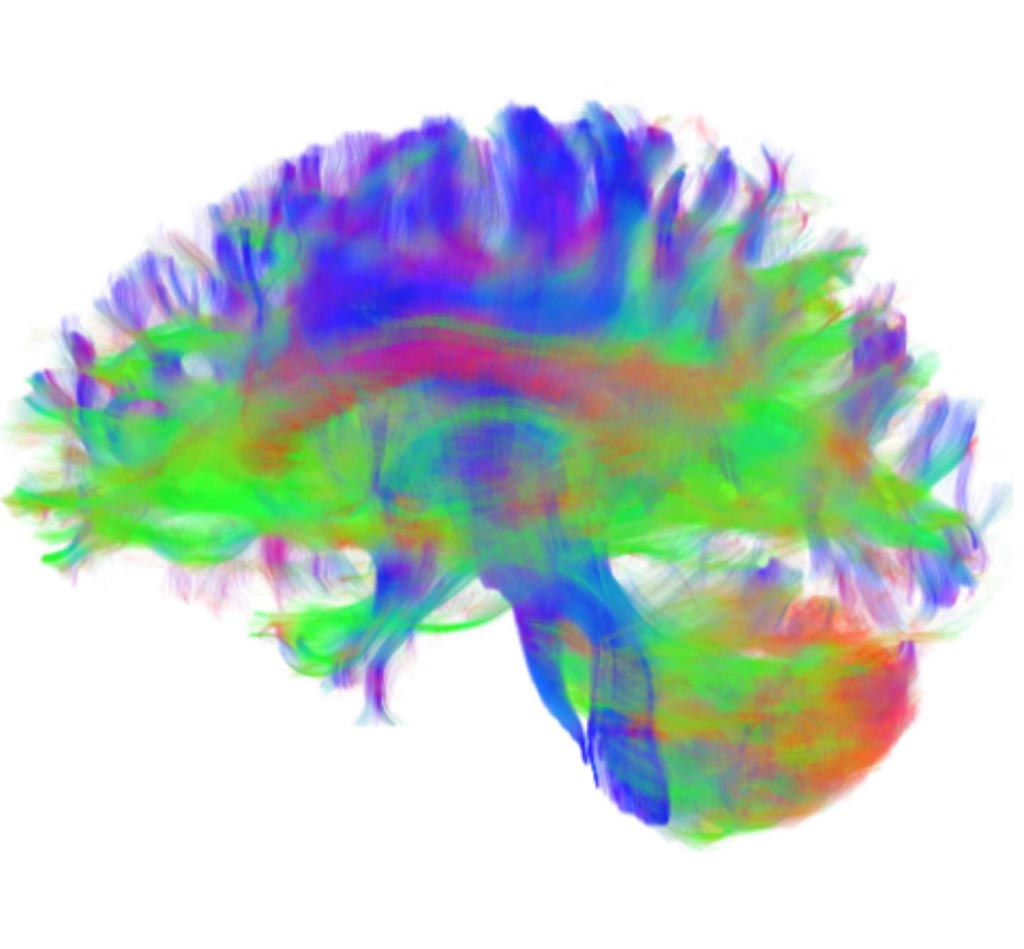Adolescent Brain Changes Influence Executive Functions
By MedImaging International staff writers
Posted on 30 May 2017
Researchers have succeeded in mapping specific brain network organization changes in children during their transition from adolescence into young adulthood, that result in dramatic improvements in their executive functions.Posted on 30 May 2017
The study findings show how changes in the brain during adolescence result in improved executive functions such as the ability to control impulses, make decisions, and stay organized. These executive functions help determine future educational success, susceptibility to psychiatric illness or drug use.

Image: A rendering of the structural brain connections in a 21-year-old male patient (Photo courtesy of PENN Medicine).
The study was published in the May 25, 2017, issue of the journal Current Biology by researchers at the Pennsylvania School of Medicine and showed that brains networks in adolescents increasingly become divided into modules that are part of a tightly connected network.
The findings also suggest that the modular sub-networks are important for complex cognition and behavior, and could help clinicians identify biomarkers that could predict risks for psychosis, or major mood disorders. The findings could also help clinicians evaluate future risks for certain mental illnesses.
Co-leader of the study, Graham Baum, neuroscience doctoral student at PENN Medicine, said, "The development of network modules did not result in the brain network becoming fragmented. In fact, the brain's predicted ability to send signals efficiently across the whole network actually increased. These results suggest that as kids grow up, their brains become both more modular but also more globally integrated. This may allow the brain to have specialized units that can work together to support advanced cognitive abilities."














